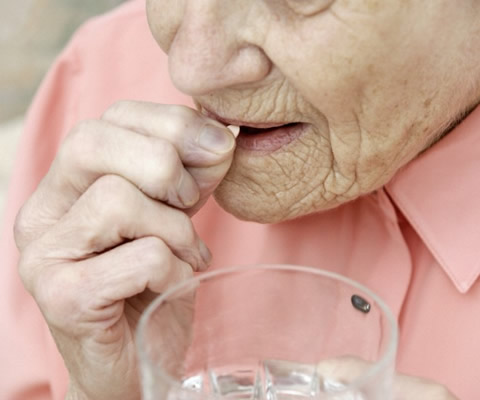Medications and Older Adults course



This session describes the physiological changes that occur with ageing and the effects these changes have on the handling of analgesic medicines.
Learning Objectives
By the end of this session you will be able to:
- Describe the physiological changes of ageing that alter drug handling
- Outline the effect of physiological changes on the handling of paracetamol and NSAIDs in older people
- Explain the clinical relevance of pharmacological differences between different opioids in older people
- Describe the considerations when choosing pharmacological treatments for neuropathic pain in older people
- Identify topical treatments for pain that may be effective for older people
Pain is a common symptom for many older people, who often have other conditions or illnesses and take multiple medicines. Safe prescribing of analgesics in older people is complex due to changes in how the body handles medicines, other medical conditions, polypharmacy and variability in response.
Roger completed his pre-registration training in the pharmaceutical industry and hospital pharmacy. He originally came to Nottingham to study for a doctorate in opioid pharmacology where his interest in pain management began.
For nearly ten years, Roger’s main role was to provide a clinical pharmacy service to the Anaesthetics directorate and to contribute to clinical activity of the multidisciplinary Pain Management Service. In September 2011, he was appointed to a new clinical academic position that provides teaching and research opportunities whilst maintaining regular clinical practice.
Roger is chair of the United Kingdom Clinical Pharmacy Association Pain Management Group. He was co-opted to the Council of The British Pain Society for several years before becoming and elected Council Member in 2011. He represents the Royal Pharmaceutical Society on pain management issues in both online and traditional media, including BBC Regional Radio regular comment.
Roger is a module editor and author for the ePAIN project.


- End of Life Care | Spiritual care | Understanding ...
- Posted By eIntegrity Healthcare e-Learning
- Posted Date: 2025-01-10
- Location:Online
- This session considers the meaning of spiritual need and distress. It also addresses how to assess the spiritual needs of those receiving end-of-life care, and when and how this can be achieved. This session was reviewed by Andrew Martin and Richard Kitch
- End of Life Care | Spiritual care | Spirituality i...
- Posted By eIntegrity Healthcare e-Learning
- Posted Date: 2025-01-10
- Location:Online
- This session explores how collaboration with the local community can help services ensure that spiritual care reaches all the people in end of life care who could benefit from it. This session was reviewed by Rebecca Whiting and Sarah Hanrott and last upd
- End of Life Care | Spiritual care | Spirituality a...
- Posted By eIntegrity Healthcare e-Learning
- Posted Date: 2025-01-10
- Location:Online
- This session will look at what health and social care professionals mean when they talk about 'spirituality' and outline how this understanding is central to the philosophy of end-of-life care. This session was reviewed by Simon Betteridge and Richard K
- End of Life Care | Spiritual care | Spirituality a...
- Posted By eIntegrity Healthcare e-Learning
- Posted Date: 2025-01-10
- Location:Online
- This session aims to help you develop an understanding of the importance of effective team working for the delivery of spiritual care and the importance of leadership, task, and respect for other team members and the disciplines they represent. This sessi
- End of Life Care | Spiritual care | Spiritual reso...
- Posted By eIntegrity Healthcare e-Learning
- Posted Date: 2025-01-10
- Location:Online
- In this session you will explore the meaning of the term spiritual resources and consider the relevance of them to a dying person’s quality of life. This sesson was reviewed by Rebecca Whiting and Sarah Hanrott and last updated in June 2023.







